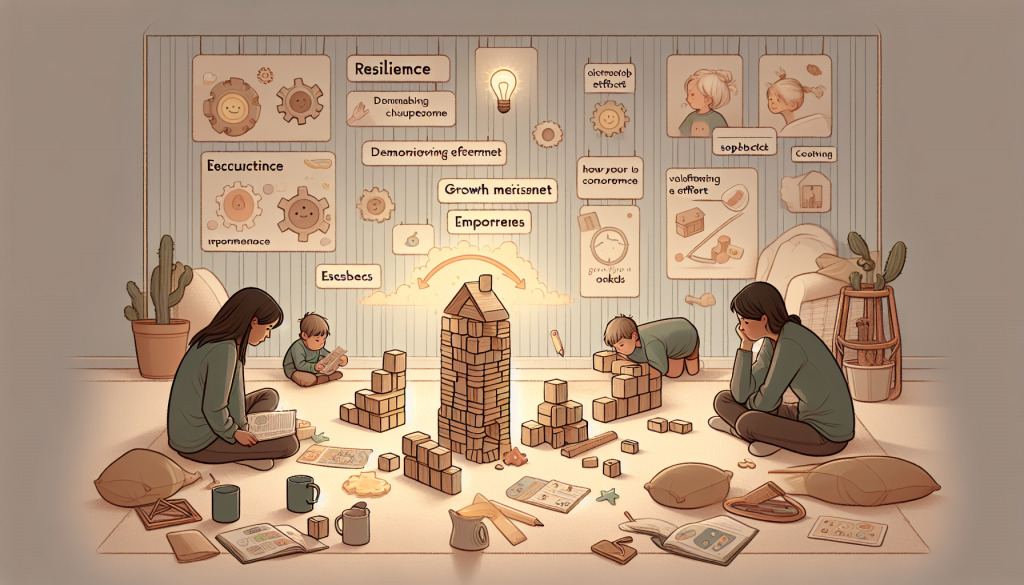“`html
How to Talk to Your Child About Failure
Failure is an inevitable part of life, but for children, it can feel overwhelming and deeply personal. As parents, it’s crucial to help children understand that failure is not the end of the road but rather a stepping stone to growth and learning. In this article, we’ll explore how to talk to your child about failure, foster resilience, and provide actionable parenting tips to build their confidence and self-esteem.
Why Talking About Failure Is Important
Children often view failure as a reflection of their worth rather than an opportunity to improve. This mindset can lead to fear of trying new things, anxiety, and even low self-esteem. By addressing failure openly, parents can help their children develop a healthier perspective and build resilience—a critical skill for navigating life’s challenges.
When you create a safe environment to discuss failure, you also meet several key psychological needs:
- Safety: Children feel secure knowing they won’t be judged or ridiculed for their mistakes.
- Autonomy: They gain the confidence to make decisions and embrace challenges.
- Self-expression: Open discussions allow children to share their feelings without fear of reprimand.
Let’s dive into how you can approach this delicate topic with your child.
Strategies for Talking About Failure with Your Child
1. Normalize Failure as Part of Life
One of the most important things you can do as a parent is to normalize failure. Share stories about your own challenges and setbacks, emphasizing what you learned from those experiences. For example, you might say:
“When I was learning to ride a bike, I fell so many times. But each time, I got back up and tried again. Eventually, I figured it out, and now I love riding my bike.”
This kind of storytelling helps children see that failure is a universal experience, not a personal flaw.
2. Focus on Effort, Not Outcomes
When praising your child, focus on the effort they put into a task rather than the result. For instance, instead of saying, “You’re so smart,” try, “I’m so proud of how hard you worked on this project!” This approach aligns with growth mindset principles, encouraging children to see abilities as something they can develop rather than fixed traits.
3. Teach Problem-Solving Skills
Failure offers a chance to develop problem-solving skills. Instead of immediately offering solutions, guide your child in analyzing what went wrong and what they could do differently next time. Ask open-ended questions like:
- “What do you think happened here?”
- “What could we try differently next time?”
- “What did you learn from this experience?”
By doing this, you empower your child to take ownership of their learning process and build resilience.
4. Validate Their Feelings
It’s natural for children to feel disappointed or upset after a setback. Instead of dismissing their emotions, validate them by saying things like:
“I can see that you’re feeling frustrated. It’s okay to feel this way. Let’s talk about it.”
This approach not only strengthens your bond but also helps children develop emotional intelligence and self-awareness.
Practical Parenting Tips for Encouraging Resilience
1. Model Resilience
Children learn by example, so show them how you handle your own failures. If you make a mistake, acknowledge it openly and demonstrate how you plan to move forward. For instance:
“I forgot an important meeting today, but I wrote it down for tomorrow so I won’t forget again.”
2. Encourage a Growth Mindset
Help your child see challenges as opportunities for growth. Use phrases like:
- “What can we learn from this?”
- “Mistakes help us get better!”
- “Every expert was once a beginner.”
For more tips on fostering a growth mindset, check out this helpful article.
3. Celebrate Small Wins
Even small victories deserve recognition. When your child overcomes a challenge or tries something new, celebrate their courage and determination. This reinforces positive behaviors and builds their self-esteem.
4. Create a Safe Space for Failure
Encourage your child to take risks and try new things without fear of judgment. You can say:
“It’s okay if it doesn’t work out. What matters is that you tried.”
This helps children feel safe to explore their potential and embrace challenges.
Conclusion
Talking about failure with your child is one of the most impactful ways to help them grow into resilient, confident individuals. By normalizing failure, focusing on effort, teaching problem-solving skills, and validating their emotions, you create a supportive environment where your child can thrive.
Remember, parenting is a journey of growth—for both you and your child. With these strategies and additional resources, you can navigate the challenges of parenting while fostering your child’s emotional well-being and resilience. Together, you’ll transform failures into stepping stones for success.
“`

